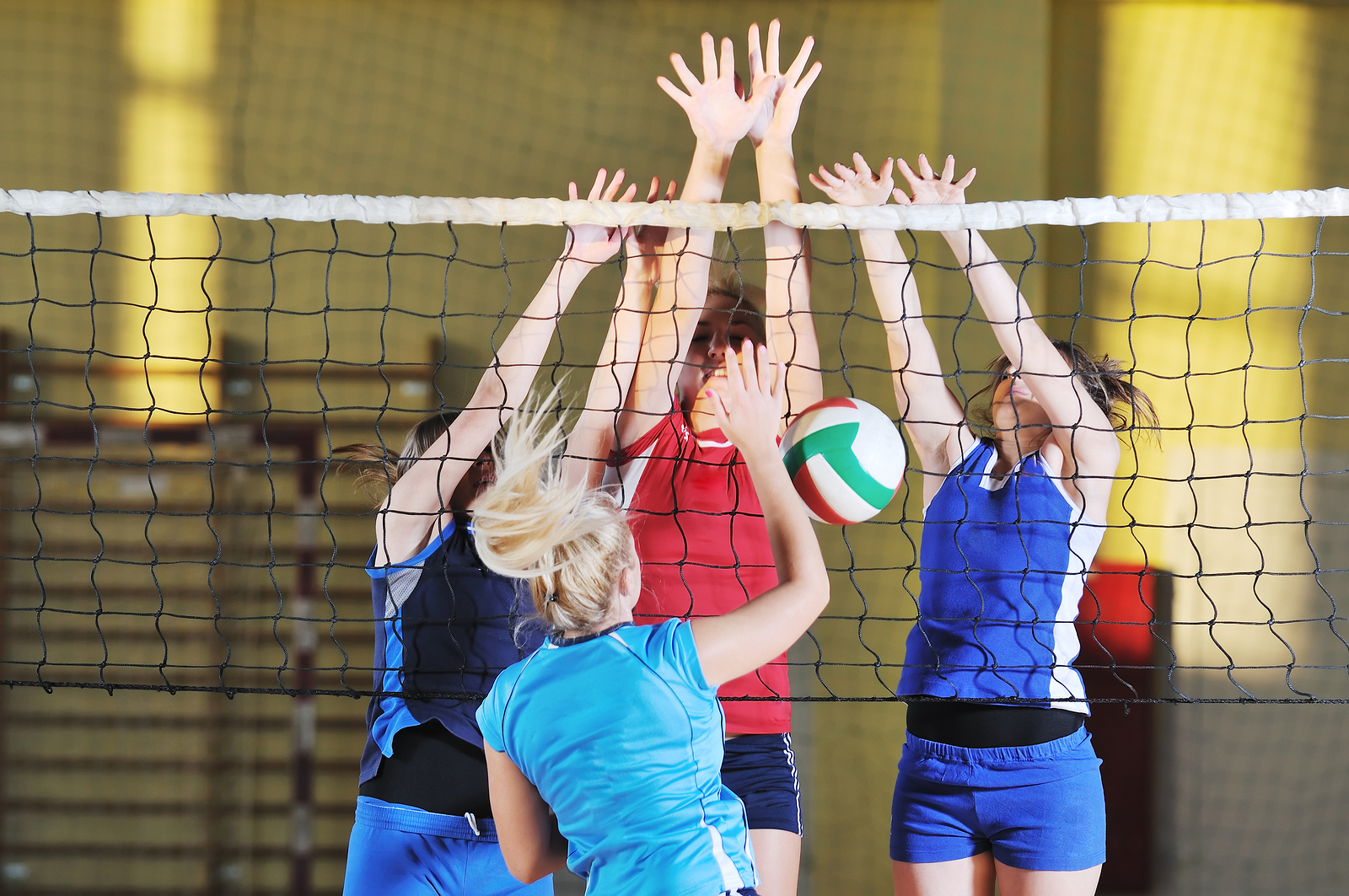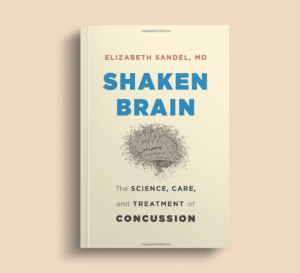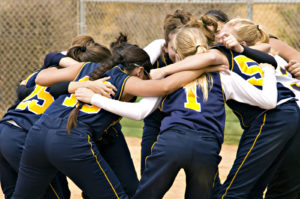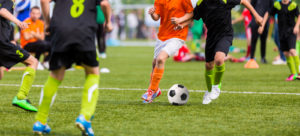Talk to Your Kids About the Concussion Risk of Collision Sports

Participating in sports carries many benefits for children of all ages. It teaches them about teamwork, discipline, perseverance, how to win and lose gracefully, and, of course, helps with physical and mental fitness. There are many upsides for kids to participate in sports.
One of the downsides of participation in sports is the increased risk of concussion and more severe traumatic brain injury (TBI). In my interview with Michelle Camicia, a rehabilitation nurse leader and Director of Operations for Kaiser Foundation Rehabilitation Center, Michelle talked about parents having the conversation with their kids when they become interested in participating in these sports.
No matter what sports or recreational activity your child is involved in, or wants to become involved in, speak with them about the risks of brain trauma and what to do if it happens. Here are three things to discuss in that conversation.
1. What a concussion is
Even a young child can understand the basics of what a concussion is if you explain it in a simple way.
A concussion is an injury to the brain caused by direct impact or shaking. When the head or body suffers a violent blow, the brain absorbs that impact, which can result in a loss of brain function that is sometimes relatively mild and short-lived, but sometimes not. In sports, that blow is most likely to be a hard fall where the head hits the ground, or maybe a hit from another player, or contact with an object like the ball or a helmet.
A concussion is not the same as blacking out or fainting, although sometimes concussion results in loss of conscious awareness. Most of the time, the athlete doesn’t lose consciousness; only about 1 in 10 youth sports injuries lead to a loss of consciousness.
Brain trauma can cause short- and long-term symptoms, reported by the injured child or adult. Just as with visible injuries like a broken wrist or a bleeding cut, the sooner medical treatment occurs after the accident, the better. That’s why it’s so important to recognize the symptoms; doing so leads to faster medical care and better outcomes.
2. What the signs of concussion are
Help your kids recognize the symptoms in themselves and in others. Tell them that if they ever experience a blow to the head, they should pay attention to any of the following common ones that might appear immediately or soon after the injury:
- Headache
- Dizziness
- Nausea
- Confusion
- Difficulty concentrating
- Difficulty speaking
- Difficulty standing, walking, or balancing
- Loss of memory
- Fatigue
- Blurry vision
Notice that many of these symptoms are subtle. They can be easy to miss or dismiss. However, if your child is experiencing any of those symptoms, they may have sustained a concussion. Some young children have difficulty describing what they are feeling or experiencing. Some kids of all ages want to keep playing and don’t want to admit they are having symptoms.
Your kids can watch out for their teammates’ health, too, by looking for these symptoms in others. If your child sees another player taking a blow to the head and then “acting funny” afterward, that player could have a concussion. Your child can do something very important about it.
3. What the correct post-head trauma protocol is
Your kids know that when the fire alarm sounds, they need to leave the building immediately. Likewise, they need to know that when they’ve experienced a blow to the head or body that affects the brain, there are certain steps they need to take, no questions asked.The first thing to do is to stop playing. Kids need to immediately notify the coach or
The first thing to do is to stop playing. Kids need to immediately notify the coach or another official who should pull them out of the game. This is critical because continuing to play after a brain injury can make the injury worse and lead to more severe long-term problems, or even the second impact syndrome (a cause of death and severe disability).
Coaches are trained to evaluate concussions on the sidelines and they’ll know what to do next. If there’s no coach, tell your child to call a parent or seek out another adult and tell them what happened.
After this, a visit to the ER or to a personal physician is the next step if brain injury is suspected. From there, other doctors, including those with specific training or experience in concussion diagnosis and management, such as physical medicine and rehabilitation and sports medicine physicians, may work together to diagnose the brain injury and come up with a plan of care.Sometimes, the trauma is so severe, a call to 911 may be warranted. If the player has lost
Sometimes, the trauma is so severe, a call to 911 may be warranted. If the player has lost consciousness, if they had a seizure are throwing up, or if they have any deterioration in thinking, moving, or other functioning, emergency medical care should be sought ASAP.
Talking with your kids often is the best thing you can do
Have this conversation more than once. At the start of every school or sports season, recap the symptoms and the protocol. Let your kids know that they have the power to take their health into their own hands.
To hear more on the topic of kids and concussions in youth sports, watch the entire interview.
You Might Also Like
Parents and Sports-Related Concussions
Michelle Camicia, MSN, PhD, the mother of two student athletes, discusses the role of parents who must pay attention to their childrens’ symptoms if they play contact sports. Are these symptoms consistently understood by student athletes and coaches? She argues for more education and advocacy to address the problem of…
Empowering Your Kids to Speak up About Concussions in Youth Sports
There are many reasons why kids do not report concussions. They must be educated about brain injuries, including concussions. They must be empowered to report to an adult any symptoms after a blow to the head, neck, or body that causes neurological symptoms (like dizziness, headache, or confusion). Removal from the sport or activity followed by evaluation by a licensed healthcare provider should be expedited.
Be a Parent Advocate for Children and Youth Sports Concussions
Parents must communicate with the school after their son or daughter has a concussion to make sure that there are accommodations if needed during recovery.
Keep up to date
Get updates on the latest in concussion, brain health, and science-related tools from Dr. Elizabeth Sandel, M.D.
By clicking SIGN UP, you agree to receive emails from Dr. Sandel and agree to our terms of use and privacy policy.
Get the book!




